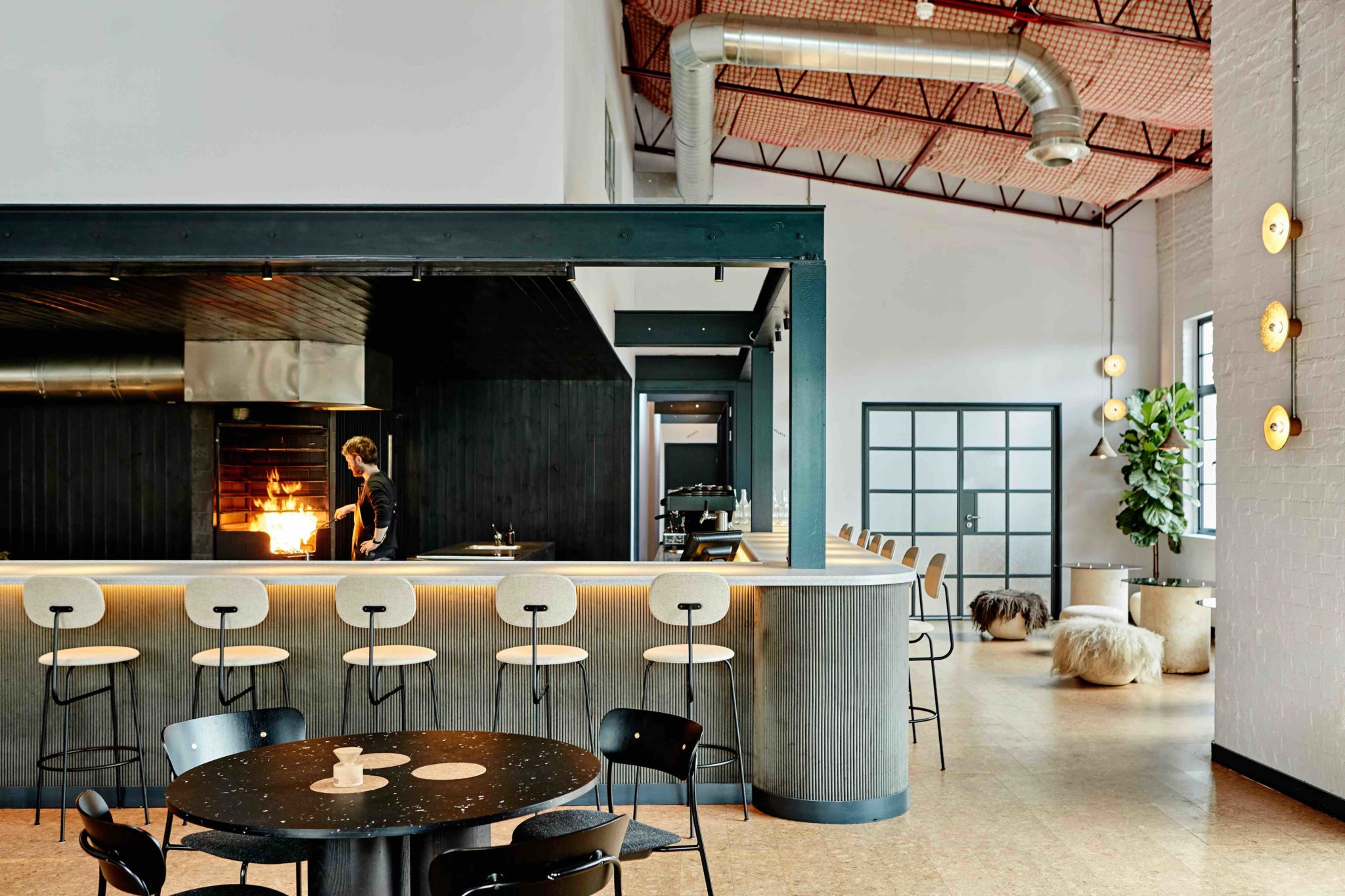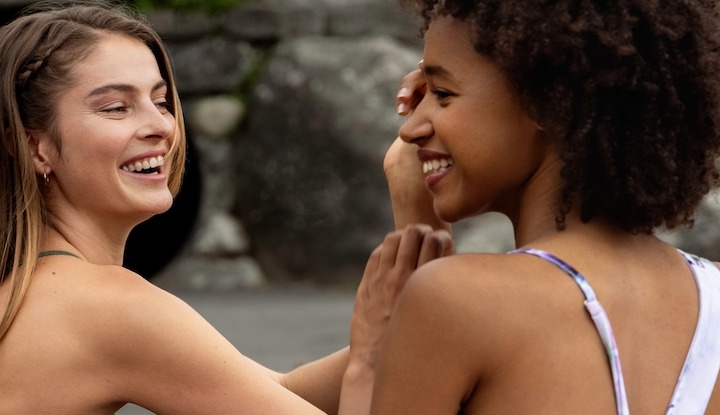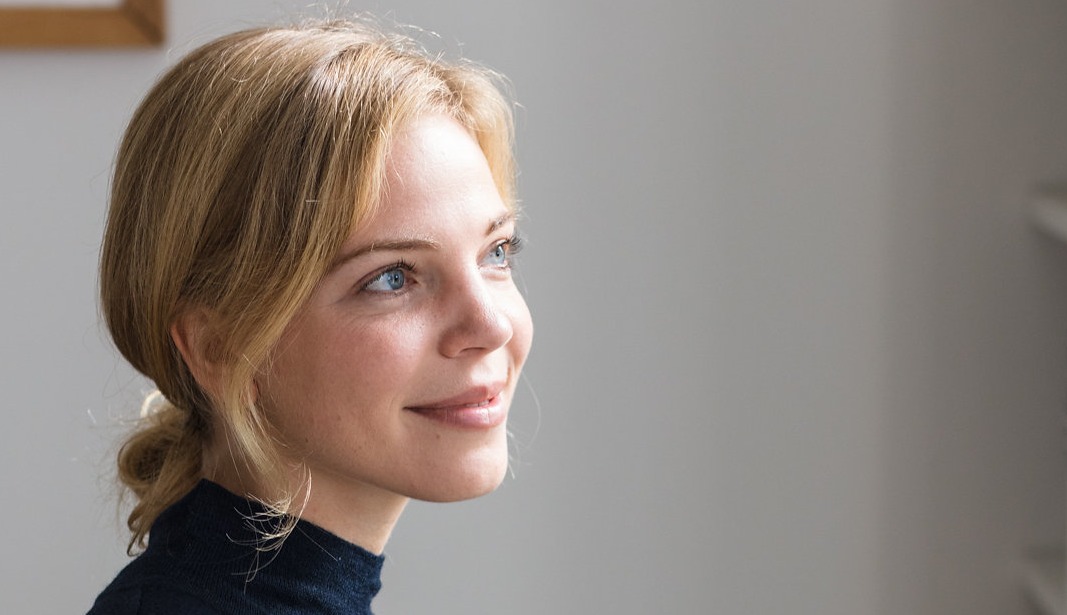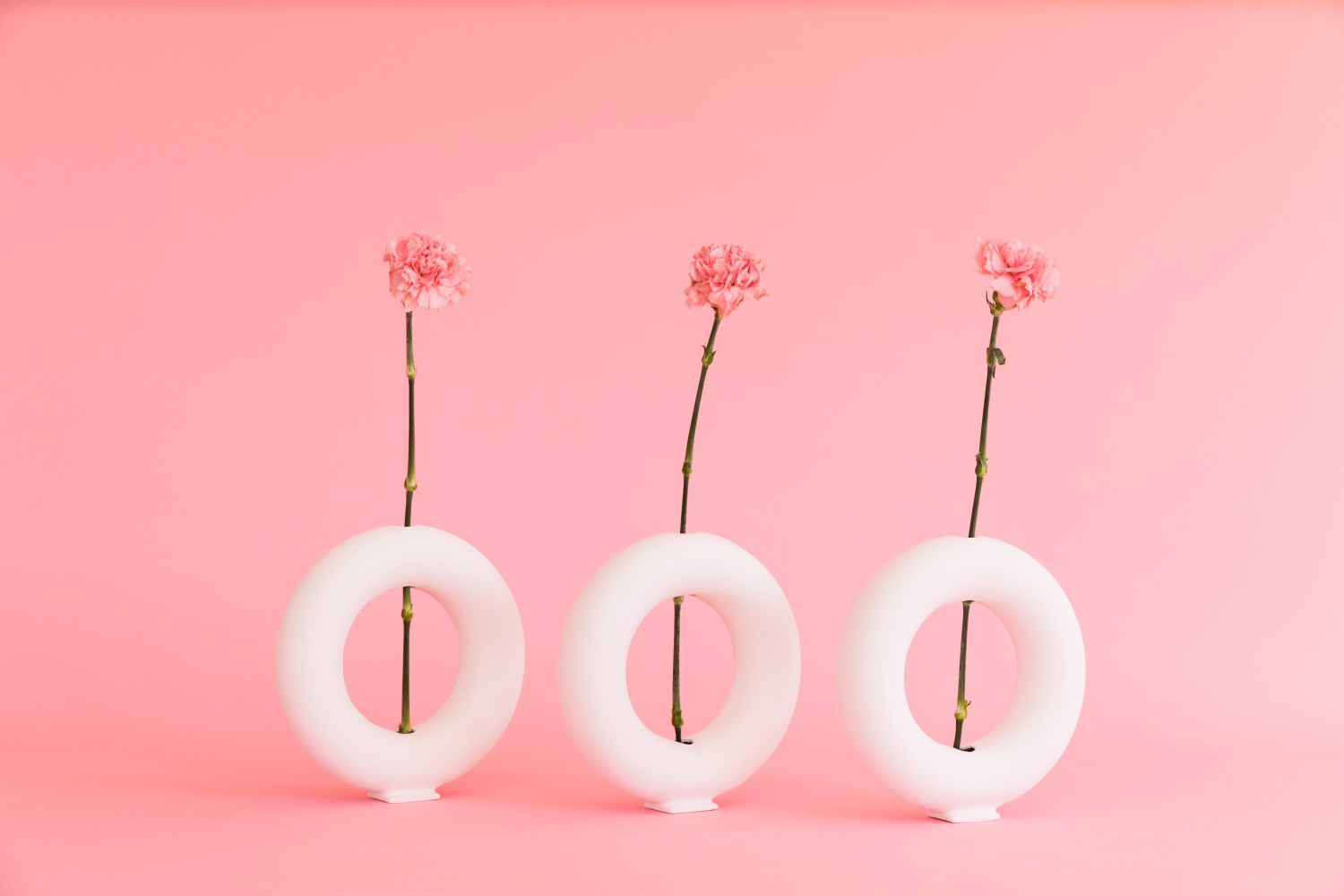
Silo was first established back in 2011 in Australia when the artist Joost Bakker simply proposed to chef Doug McMaster, the notion of ‘not having a bin’. It was from this point on that Silo’s chef and owner built the business up from being the world’s first zero waste restaurant.
The sustainability association, Too Good To Waste, estimated that in London, a staggering 600,000 tonnes of food is wasted every year – and it’s chefs like Doug McMaster who are leading the industry in reducing this wastage. The Hackney-based restaurant works directly with farms to source their produce. They create their own flour mill, churn their own butter, make their own oat milk, roll their own oasts and support a nose to tail ideology when it comes to meat – which means that they’ll maximise the whole animal respectfully as to avoid waste.
Even the label’s furniture and fittings are considered. They choose up-cycled pieces and furniture crafted from materials that would otherwise have been wasted. Their plates are formed from plastic bags, tables from reconstituted food packaging, light shades are made from mycelium grown on used brewing grains and the crockery is formed from crushed wine bottles. All products are delivered to the restaurant in re-usable vessels and anything that isn’t consumed by our customers or the team is fed into their aerobic digester which can generate up to 60kg of compost in just 24 hours.
The Forward Lab had the pleasure of speaking with chef and founder of Silo, Doug McMaster, on everything from the industry to his plans for lockdown.
Hello Doug! Thanks for agreeing to meet with The Forward Lab.
To start, why don’t you tell us how would you best describe Silo to someone who’s never been before?
To describe that to someone that’s new to the conversation, I would say that firstly, we don’t have a bin. What that means as a culinary, is that…you’re forced to do a bunch of things, which conveniently forces you to cook food which is more natural. When food is natural, it’s healthier and I would argue, it’s more delicious.
Our food comes directly from the farm – it’s also loose with no packing and we insist that we don’t want it. It works because it’s direct – if it wasn’t it wouldn’t work. So the food comes in on the day it’s been picked and then it’s on the plate the same day or in 48 hours… It’s an organic food system.

What motivated you to create a zero waste restaurant in the first place?
I was raised in a very small working class town in the North of England where there was no art to food. Food was just fuel. There was no point in my childhood where food was a precious thing. You bought sweets and that was a precious thing.
I certainly wasn’t a foodie – it certainly wasn’t till late when I was travelling the world and I met this artist in Australia and it was at a time where I was already a chef…
I was working in a kitchen in Sydney and he opened my eyes to the idea of zero waste restaurant. He was way ahead of his time – when I met him 9 years ago, in 2011, he was making a building out of waste material. He has been commissioned by the Sydney council for a food festival.
But it wasn’t necessarily zero waste food, it was just food. That’s when I came along. We had these profound conversations, in which he said to me, could you just not have a bin?
That’s when we created Silo as a pop-up concept. Later on he said to me, you take Silo, it’s your baby. Please go on and do us proud.
What are you most proud of when it comes to the development of Silo? Your most inventive ideas? Your favourite one?
So many. Too many to even think about let alone mention.
What we’ve basically created is a very different business – it’s like a restaurant, that is the same, but the whole back of house operation is radically different.
Any other restaurant operates very differently – the structure of staff for instance, we have to pay them way more, rather than paying more for ingredients and so it’s a different dynamic all together.
We have more staff because we have to churn all of our own butter and mill our own flour. If we need yoghurt, we make it from scratch.
But then what’s fascinating and this is some of the challenges we are faced with: first, how to make all of these things, and second – for instance, when you make butter from cream, what do you do with all the buttermilk?
There’s so much of it when you make cream.
And the biggest challenge is what to do with all of the bi-products that we make, and it’s just trying to find out what to do with a phenomenal amount of butter milk – and what to do with all the vegetable scraps? It’s just endless for us.

Have you adopted a sustainable lifestyle and have you applied consciousness to other parts of your life?
There was a little while when I thought I was doing as much as I can in my restaurant, so I didn’t want to apply it to the rest of my life.
There’s still a part of it that’s true – as there’s such massive sacrifice as I’m sure you know. Changing your behaviour is pretty taxing – you don’t get any benefits from doing it, there’s no incentives, no pat on the backs from the government, so I thought I’m doing enough.
It is different to adapt when you see the price point too. But when you know the damage and the slave labour that’s occurring to produce certain products you cannot go back.
We just opened the White Building Market, as our homewares store. A collaboration between Silo and Crate. It’s got all the Crate beers and Silo wines, the chopping boards, aprons, the knives made from waste and so on. We’re also selling cleaning products and soon to be, produce including our bread and butter.
What culinary trends would you like to see disappear in the future?
Popular ingredients being used extensively – things like lobster. Diversity in food is really important, to use all the parts of products but certain things become trendy and everyone wants it.
It then creates an unequal balance and nature won’t exactly give us what’s on trend. I’m very anti what’s-on-trend because there’s always an abundance of it.
It’s just that approach to opulence – let’s all use caviar and lobster – they’re all delicious but actually, let’s use those off-grid things, those ingredients that aren’t popular and let’s popularize them. I’d really like to see the ‘lesser ingredients’ a lot more on our plates.
What advice would you give to someone hoping to start their own restaurant with a zero waste focus?
Often I want to say, it’s really hard. It’s hardcore to be completely zero waste, and that takes all kind of sacrifices so instead take an area like going plastic free because that’s just a remarkable step in the right direction. Or zero food waste and compost everything rather than going to landfill. Or use perishable ingredients that come from 60 miles around you.
You launched a zero waste cooking school yesterday! Congratulations!
It’s a lockdown baby. I was sitting twiddling my thumbs at the beginning of lockdown thinking, what next? I’ve got Silo and The White Building Market, but beyond that, are we just appealing to a selective few in East London? Which is a good thing of course, and the iteration that Silo creates to the restaurant industry is quite powerful, we really are influencing change.
I’m sure you remember, every chef was doing sour dough recipes at the start of lockdown, and I did as well!! Then I was like we can go a little deeper so I got really ambitious, and thought we could literally do cooking videos for everyone at home. But this took a lot of planning and research, and we created a whole new vision for the future with zero waste as the focus.
Our main channel is going to be Youtube which we will launch in the next couple of weeks. But our main audience is Instagram anyway so it’s creating a kind of excitement.
Check the Zero Waste Cooking School.

What do you imagine the culinary industry to look like in 20 years’ time?
I’d like to see some type of certification – a body or organisation monitoring and promoting positively the activeness of zero waste and sustainability.
I’d like to be part of that or the person behind that but I’ve got a lot on my plate so we’ll see!!
What does 2021 look like for yourself and Silo?
Silo is only in its second year. A big push will be put on the Zero Waste Cooking School, in terms of my personal drive and attention. I would also like to see the White Market go online so everyone can order all the goods to their home.
















